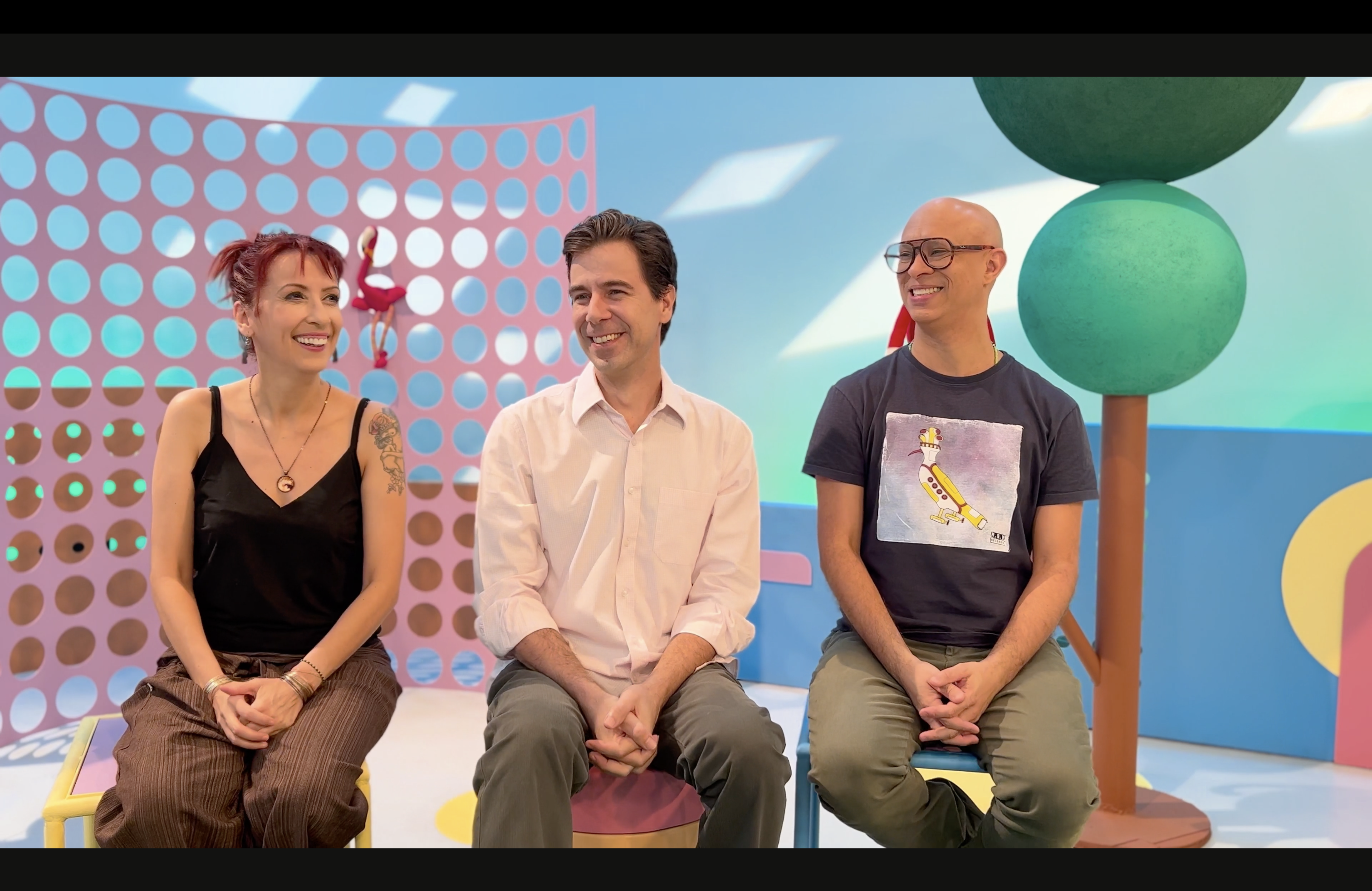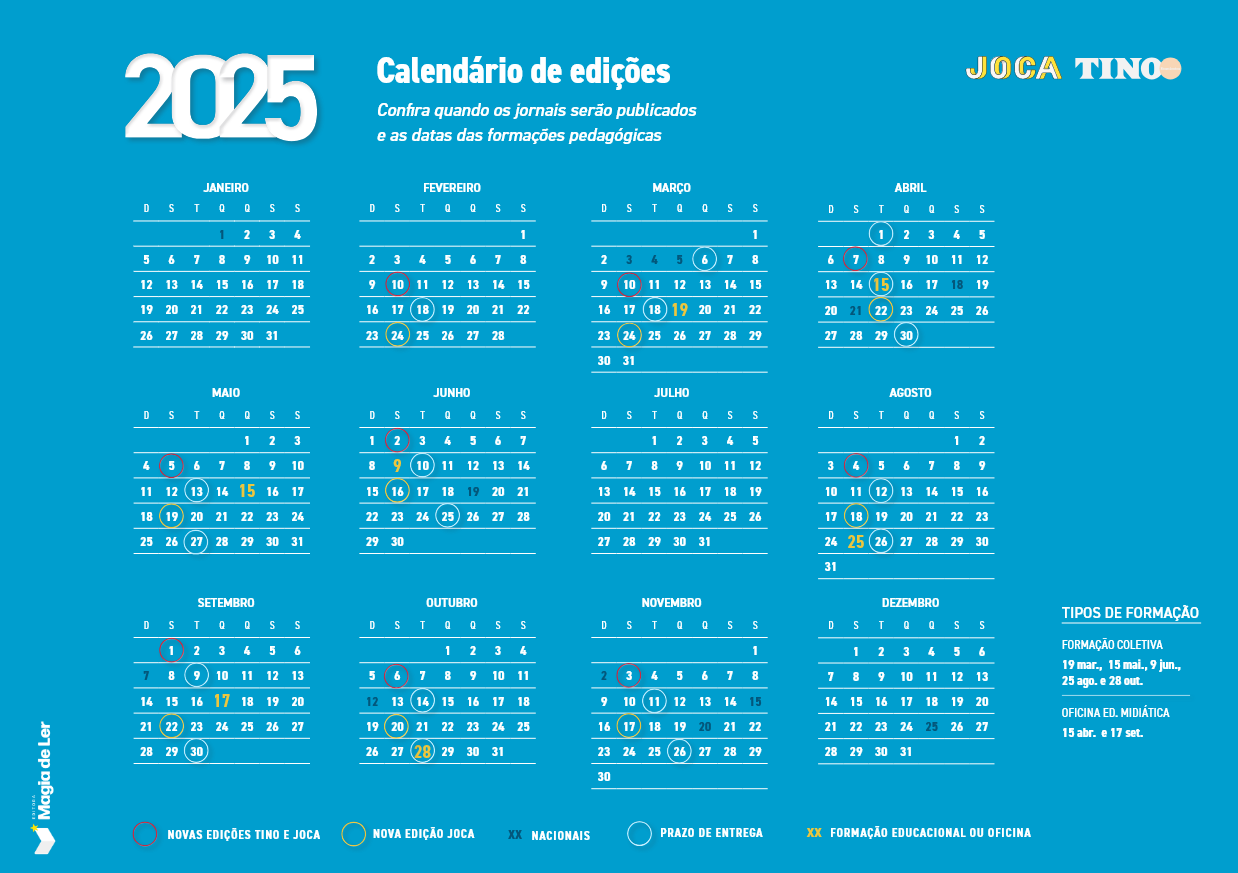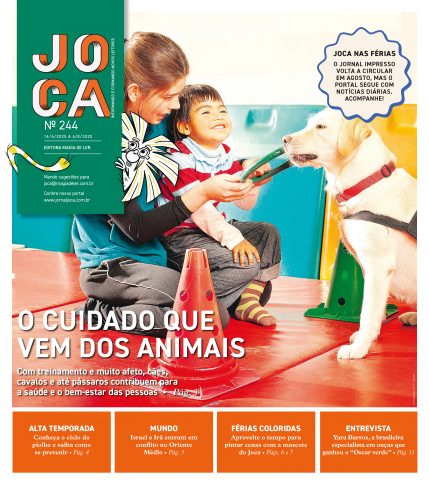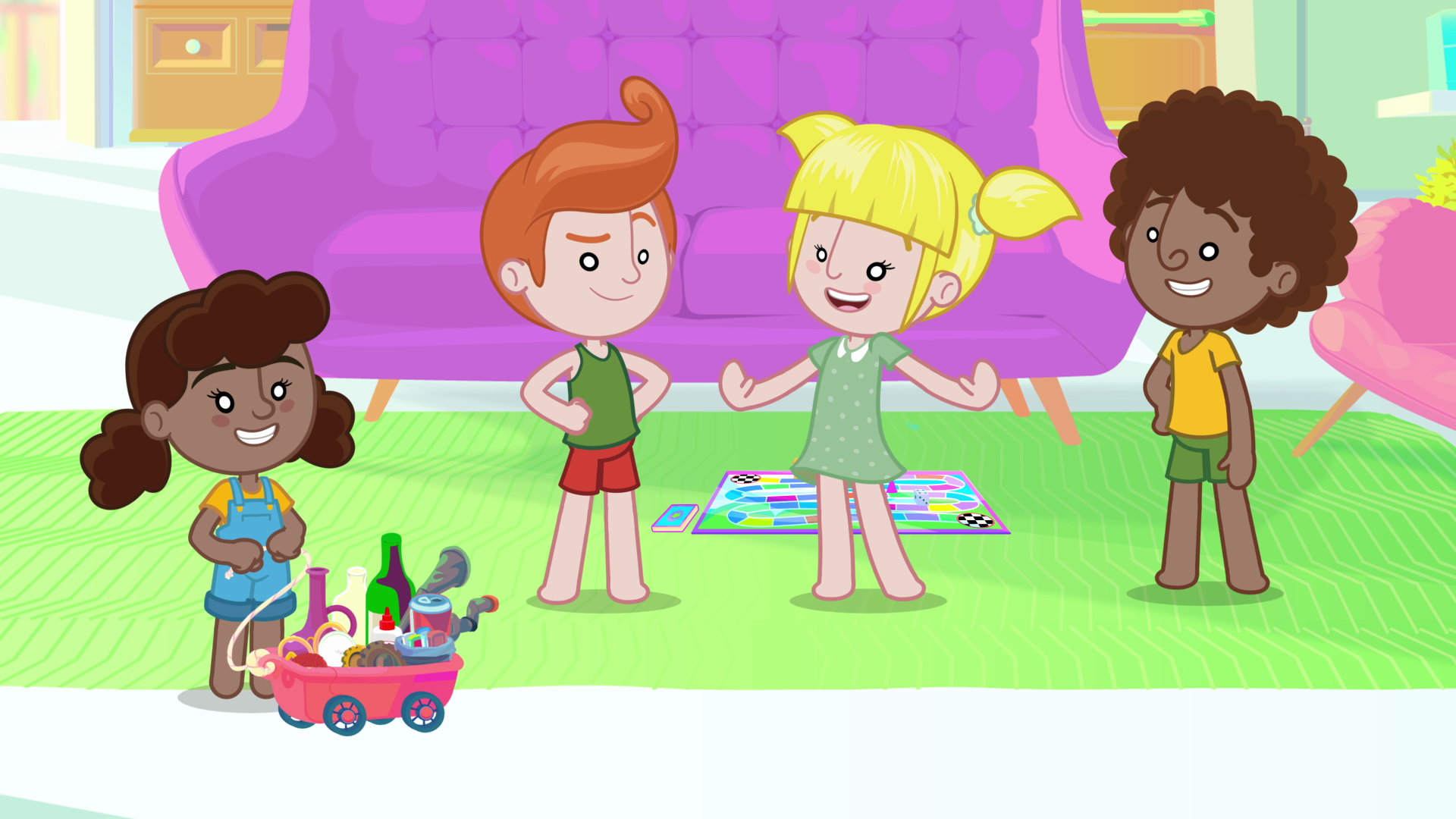Edições Impressas
10 de junho de 2024
Life in Quintal da Cultura – Level 3
Article published in Joca 225

Quintal da Cultura (2011) is a program produced by TV Cultura and directed by Bete Rodrigues that features the adventures of siblings Ludovico (José Eduardo Rennó) and Doroteia (Helena Ritto), together with Ofélia (Mafalda Pequenino), their nephew Osório (Jonathan Faria), and many other friends. To fi nd out more about the series and the actors’ careers, Joca visited the TV Cultura studios and spoke to Jonathan, José Eduardo, and Helena. This interview was conducted by Clube do Joca members: Bernardo B., Gabriela C., Leonardo F., Manuela V., Sarah W., and Sofi a V.. Leonardo and Sofi a went to the studio, saw the TV show’s set and talked to the artists.
Leonardo: It was great to watch Quintal da Cultura during the pandemic. What was it like to record during that time?
José: Look, recording during the pandemic was a challenge, right? TV Cultura followed social distancing and mask-wearing procedures and, after a certain time, we worked from home. But we were alone, used our cell phones to record, fixed our microphones ourselves, did our own makeup, put on our costumes. Jonathan: Production brought part of the set, costumes, and makeup kits to our homes. So, we would do our makeup, build the set, and then turn on the camera for the production team and the director… I think we recorded about three times a week. And then, on those days, we did several programs.
Sofia: How did you develop these characters?
José: When the program started, we got suggestions from the team about what the characters would be like. And we started to create them from that. Then the costumes arrived, and they helped give us an idea of what the character would be like. For example, if you wear a shoe of this size, you can’t walk, you trip everywhere, and that might be great for the character.
Helena: There is one thing that we must make very clear: Doroteia, Osório, Ludovico and Ofélia are a team effort. Of course, the actor plays an important role, but what the characters say comes from people who understand all of this really well. So you can’t say it’s just us, it’s a collective effort.
S: And why do you like acting?
Helena: It’s like playing big time. And when we’re having fun, so is the audience. So it’s lovely to wake up in the morning and think: “Hey, today I’m going to play at being Snow White.”
José: Then you experience other situations, you go through things you wouldn’t otherwise, you have different feelings, and try new things. It’s like living in a really different way too. It’s different from theater, because we shoot small bits, it’s not a two-hour play. We don’t record the whole show at once. So you start (acting out) the emotion, cut, start again, cut…
Jonathan: I was a very shy and troubled teenager. I was shy about everything. And then, one day, I walked past a theater class and saw people rehearsing. I went crazy. I tried to get in, but I couldn’t, because I couldn’t afford it. Then, one day my school started a drama course, and I went for it. I rehearsed, rehearsed, rehearsed, and then the play opened. In one of the first scenes, I realized that I had found my little place.
L: How is the set prepared?
Jonathan: There’s a great technical team. First, there are those who create the set, who imagine it, and design it.
José: Then there’s the builders and set operators. You can tell that it is not very big, but there are parts that are movable. So, you take a tree from there, move it here… They adjust the space. Helena: And it’s all collective. The set does not exist without light, and it also will not exist if there isn’t creativity in the way it’s directed or in the playwriting, to create situations with what we have. A trunk can become a ship, which can then become a bed or a portal.
Ixi! Você bateu no paywall!
Ainda não é assinante? Assine agora e tenha acesso ilimitado ao conteúdo do Joca.











Você precisa fazer o login para publicar um comentário.